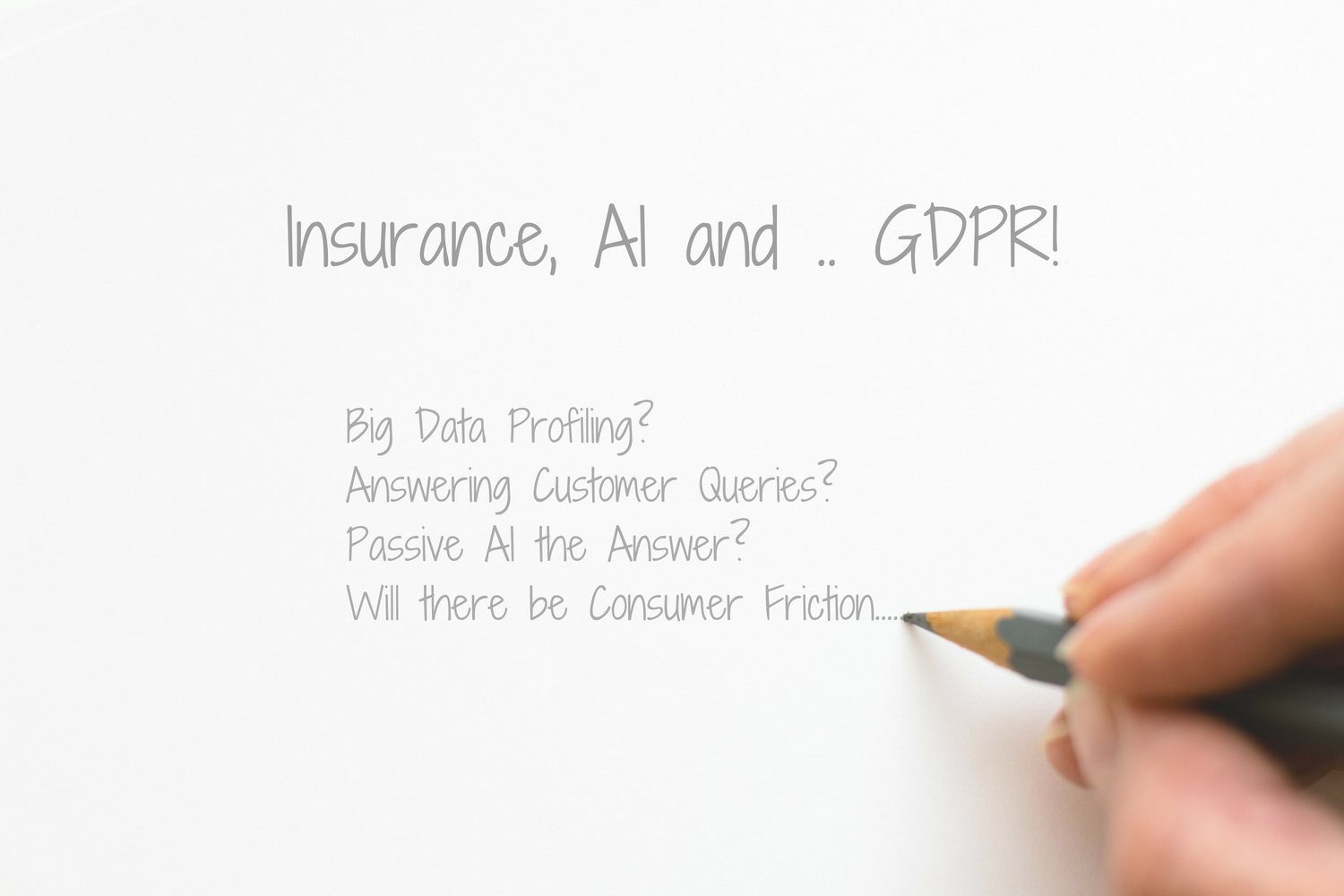What are the ramifications for AI utilised in the insurance industry post GDPR?
We have lots of firms using embedded AI into solutions that automates claims decisions, capture fraud or to check on creditworthiness, however the consumer does not have the option to tick a box to opt out. So what happens then?

GDPR is over.. Is it?
There have been and are billions of euros spent by the insurance industries on artificial intelligence technologies, but how much has the GDPR legislation put the sector into a spin?
We have seen a whole host of firms getting under the wire with the new consumer data protection, asking their client base to “please let us keep in touch!” Which of course makes the whole marketing space that much more difficult, especially whilst trying to cross sell or to keep that ‘top of the mind’ campaign running.
Embedded AI is very powerful
We have lots of firms using embedded AI into solutions that automates claims decisions, capture fraud or to check on creditworthiness, however the consumer does not have the option to tick a box to opt out. So what happens then?
The problem of course is that, if theoretically your customer has been rejected for a claim based in a large part on an AI decision from many data points. How does a claims handler then manage the customer and give them a true reason without saying that the computer said no!
Accenture claimed in a report recently that 4 out of 5 execs say that AI systems will be working alongside human customer care people within the next two years.
“Much more than just a technological tool, AI has grown to the point where it often has as much influence as the people putting it to use, both within and outside the company,” Accenture said in the report.
So how does your human explain that you are not worthy for credit or you have been fraudulent?
Ok, some of this is moot, you do not necessarily get clear answers using ‘old school’ mechanisms, but what happens if they ask for the data that you have on them to be disclosed? What if you get consent at the start, is that a consumer friendly approach to take and does the consumer understand it?
The problem is that the answers of course lie within an algorithm that your customer service human, may not understand. So to allow this to work, then firms are going to need to address this as an internal education process, so that the benefit of AI is not lost and you can be clear and transparent.
Allianz SE, use AI, data and ML tech across their business to including automation of paper workflows and underwriting and they have decided that anything that is using a automatic decision making process is managed via a consent or as a condition of the contract that they are entering into.
“In scenarios where profiling is necessary for entering into a contract, this will be made transparent to the customer in an understandable way,” said Philipp Raether, chief privacy officer at Munich-based Allianz Group
Passive AI approaches do not affect standard GDPR.
However some innovative approaches to the use of AI do not need the consent, but simply help the work processes, that would have taken a human that much longer to do, or provide a 24/7 access to their account or service.
Conversational Quote and Buy is being delivered by the team at Disruption Works, for clients to take advantage of streamlined sales processes and to augment their existing channels.
The outcomes from this approach include improved conversion rates for the journey as well as improved returning customer experiences.
Also a huge benefit is the added reach of a quote and buy process that does not have to sit solely on traditional marketing assets, such as web or app. The conversation will be delivered seamlessly across other channels such as Facebook. Sitting well within the discovery rather than search model of marketing. In consumer retail, there are also case studies that show that conversational insight from this approach also provides strong product development, based on the data from all these conversations.
Another superb example of using AI in a passive manner is from the Brussels based insurer, Ageas. The UK arm is developing their solutions to enable them to improve the speed of handling motor claims. They are looking to use AI to help to estimate jobs by using computer vision to review vehicle damage images.
These approaches are not affected by GDPR, especially when the data stays within the firms’ infrastructure and allows removal and reporting on request.
So there maybe some ramifications when unleashing AI in to the insurance sector as it can do some much, but staying accountable and customer focussed may mean there are some searching questions around big deployments and developments in the next 12 months.












